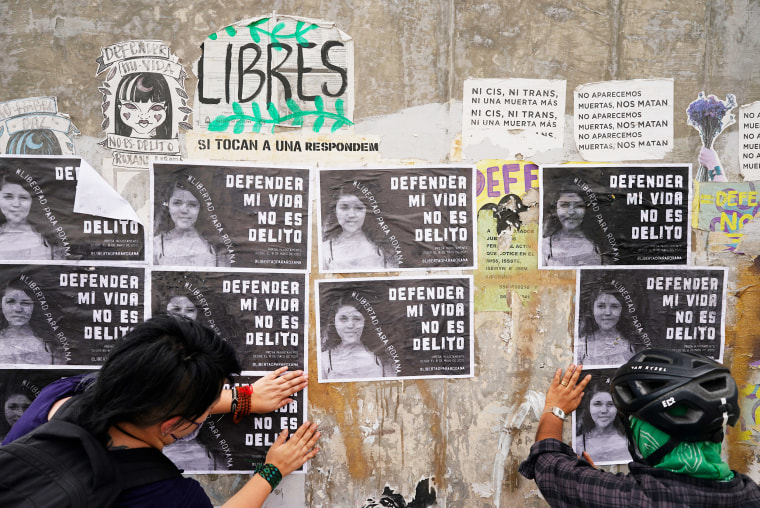MEXICO CITY — A Mexican woman who killed a defending man when he attacked and raped her in 2021 has been sentenced to more than six years in prison, a decision her legal defense called “discriminatory” and vowed to appeal Tuesday.
The ruling against Roxana Ruiz drew the ire of experts and feminist groups who said it spoke to the depth of gender-based violence and Mexico’s poor record in bringing perpetrators of sexual violence to justice.
“It would be a bad precedent if this sentence were upheld. It’s sending the message to women that, you know what, the law says you can defend yourself, but only up to a certain point,” said Ángel Carrera, her defense attorney. «He raped you, but you have no right to do anything.»
The Associated Press does not normally identify victims of sexual assault, but Ruiz has given her permission to be identified and is participating in public demonstrations led by activists who support her.
While the Mexico State court found Ruiz had been raped Monday, it said the 23-year-old was guilty of manslaughter with «excessive use of self-defense,» adding that hitting the man on the head would have been enough. to defend. Ruiz was also ordered to pay more than $16,000 in reparations to the family of the man who raped her.

In May 2021, Ruiz worked selling French fries in Nezahualcóyotl, one of the 11 municipalities in the State of Mexico with a gender alert for femicides and another for the forced disappearance of women.
Over a beer with a friend, Ruiz, an indigenous Mixtec woman and single mother from the state of Oaxaca, met a man she had seen in the neighborhood. After hanging out, he offered to walk her to her house and then asked to stay the night because it was late and he was far from home.
Ruiz agreed to let him sleep on a mattress on the floor. But while she slept he climbed into her bed, beat her, tore off her clothes and raped her, according to Ruiz’s legal defense. Ruiz fought back, hitting him on the nose. He threatened to kill her, and in the struggle to be free of her she killed him in her own defense.
Panicking, Ruiz put the man’s body in a bag and dragged it to the street where passing police arrested her.
Despite telling police she had been raped, Carrera said she was never given a forensic examination, a crucial step in prosecuting sexual violence cases. Instead, an officer responded that she probably wanted to have sex with the man at first and then changed her mind, she said.
“I regret what I did, but if I hadn’t done it today I would be dead,” Ruiz told the AP in an interview last year, adding: “It is clear that the state wants to silence us, it wants us to be submissive, it He wants us locked up inside, he wants us dead.
Women’s rights groups have repeatedly accused Mexican authorities of re-victimizing survivors and failing to judge cases with a gender perspective.
Ruiz spent nine months in jail on charges of manslaughter in excess of self-defense and was eventually released pending trial.
Almost half of Mexican women have experienced sexual violence in their lifetime, government data shows.
In 2022, the Mexican government recorded a total of 3,754 women, an average of 10 per day, who were intentionally killed, a significant increase from the previous year. Only a third were investigated as femicides.
That number is likely only a fraction of the real number due to the rise in disappearances and the underreporting of violence in the country.
Angélica Ospina, an International Crisis Group gender fellow in Mexico, said she is concerned that the ruling could empower perpetrators while discouraging women from reporting gender-based violence or defending themselves.
The case shows how “normalized” gender-based violence is in Mexico and other parts of Latin America, Ospina said.
“When a woman defends herself, the system is particularly efficient in prosecuting her and sentencing her regardless of the conditions in which she killed the man,” Ospina said.
Meanwhile, outside the courtroom, women carried banners and chanted «justice!» Ruiz, through tears, stood in front of the crowd, thanking feminist groups and the women who had supported her through the years of the judicial process.
Speaking to the crowd, he thought of his 4-year-old son.
“My son, I hope to see you again. I hope to stay with him, to be the one to see him grow,» Ruiz said.

